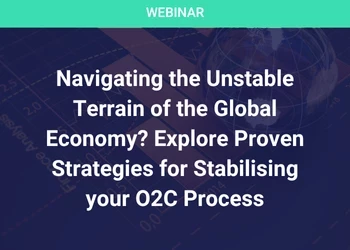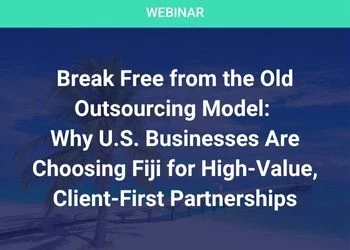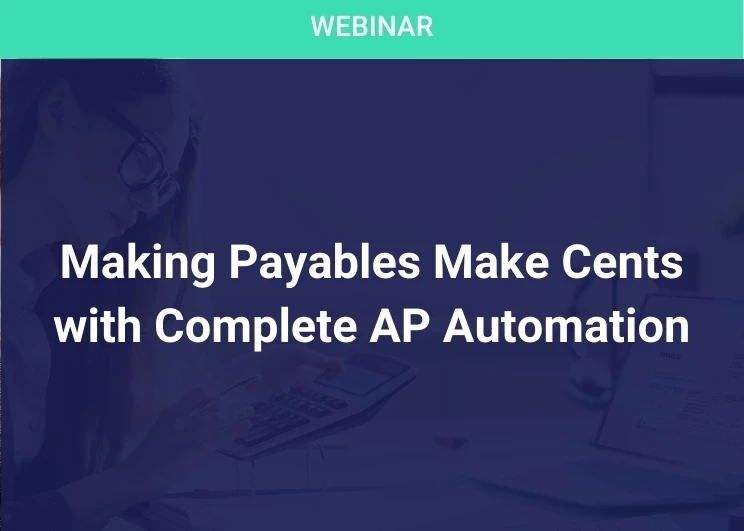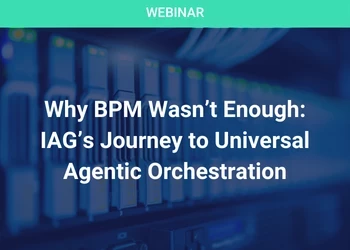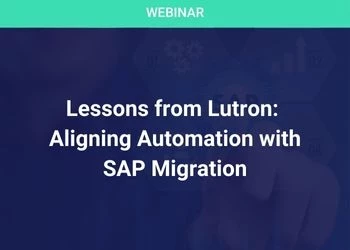Asian Award-Winner: Jerome Debreu, CFO Asia-Pacific, Knorr-Bremse
Add bookmarkAt the 2009 Asian SSON Excellence Awards, the runner-up in the Best New Services Delivery category was awarded to the shared services team at Knorr-Bremse Asia Pacific. Jerome Debreu, CFO Asia-Pacific for Knorr-Bremse and the man responsible for the development and growth of the shared services unit into a multi-award-winning organization, shares the secrets of his success and explains how to grow an idea into a multi-billion-euro institution – starting with only €100.
(Note: this interview took place in 2010. Mr. Debreu has since moved on and is now CFO of the Auto Exterior division at Plastic Omnium Auto Exterior, Paris, France)
SSON: Jerome, let’s begin by getting an understanding of your role at Knorr-Bremse: what are your responsibilities?
Jerome Debreu: In Knorr-Bremse I am CFO for the Asia-Pacific region and Member of the Executive Committee Asia Pacific; that covers 20 legal units in India, China, Japan, South Korea, Singapore, Australia, Taiwan, and the HQ in Hong Kong. Sales revenue last year was €530 million, and this year we already have orders of around €1 billion. I started the business in 2003 with €100 equity! I went on the road with my €100 looking for opportunities in M&A, joint ventures and greenfield operations - and this is where we are today.
So my responsibilities as CFO are a little bit more than they are with other companies: we are family owned - we are not listed but following the same reporting requirements, I would say even more operational and long term orientated - and when you start a business from scratch you have to take care of much more than with, let’s say, an already well-established company. I have been taking care of, for example, HR, IT, operations and compliance as well. And of course other than that I have the job of a "normal" CFO which is consolidation, treasury, hedging activities, taxes, planning, forecasting, budgeting, M&A, Post Merger Integration, Transfer Pricing, Cash Management, Balance Sheet Management etc.; I’m also company secretary sitting on the Board of our key locations in China, Japan and South Korea. That’s what I do.
SSON: That’s a pretty big workload!
JD: This is a very big workload; that’s why I’ve been working more or less day and night for seven and a half years - from 9 in the morning to, minimum, midnight, every day…
SSON: That’s very inspirational - and also a little intimidating… With regards to your shared services team specifically: you won the Runner Up award for Best New Captive Services Delivery at the 2009 Asian Shared Services & Outsourcing Excellence Awards. Can you go into a little detail about how shared services is distributed within Knorr-Bremse and the kind of changes you’ve undergone since you began?
JD: OK, so first of all, Knorr-Bremse is a company doing worldwide around €2.8 billion sales, with 14,255 people; it’s a little more than 105 years old, with two divisions: railway, manufacturing mostly brake systems, doors, and air-conditioning systems for trains; and the commercial vehicles division supplying brake systems for trucks and buses. As I said Knorr-Bremse is the world‘s leading braking technology company.
Using this strong corporate experience and backing, and having worked for four years at the Group HQ in Munich before coming to Hong Kong, I did leverage that experience for Asia to go one step further in our processes - and this is the link to the award-winning strategy we got. I came to Asia in 2003 with, as I said, €100 in my pocket and tasked to set up the business, and it was basically my chance - since I came after four years at the Munich HQ where I saw that basically when you try to set up a shared service, but you’re far from the operations trying to give advice to an outside location, it’s quite difficult to get acceptance and recognition.
So what I’ve done to overcome this acceptance issue and speed up business under control, since I set up all operations on a "green field", I have transformed the classical divisional thinking: I said "I am Knorr-Bremse: this means no distinction between rail, truck and holding. My people will be multi-tasked, they will be multi-skilled, and even if they have a corporate function like corporate treasurer, I want them from the beginning to have a link to the operations and to be able to get acceptance from within operations." This is how Knorr-Bremse Asia Pacific Shared Services were born.
That meant also a ‘godfather/ godmother’ rule: this means that my treasurer for example is the ‘godfather’ of the air-conditioning activity, so he is the first guy to be contacted at HQ when the company we have in Wuxi manufacturing air-conditioning and heating systems for trains has some finance questions, or another company we have also producing air-conditioning systems in Shanghai; or my deputy CFO, she is the ‘godmother’ for doors in Qingdao and platform screen-door activity in Guangzhou, and she will be the first person contacted. That means that outside of their corporate tasks they all have operational links via the ‘godfather and godmother’ rule.
This is how everything started - and basically I initiated a shared services organization even without at that time knowing in detail what a shared service was! When I came to Hong Kong I had no-one and knew nobody; so you hire one guy by one guy, and you need to ask them to do much more than just being for example a treasurer, the person in charge of consolidation, or the person in charge of M&A. The principles are simple: no distinction between rail division, commercial vehicles division and holding corporate division; and ‘godfather and godmother’ rule, so a link between corporate and operations to get acceptance from the locations as the customer of the services you provide.
The shared service itself is like this: in Hong Kong we have IT; HR; indirect purchasing; finance and controlling - my department covering: M&A; planning; tax; treasury; consolidation; rail controlling; and truck controlling. This is how we’re set up, and of course only the management function is based in Hong Kong. We have offshored some of our operational IT staff to China – because our biggest market and operations are in China - and an IT development team in India already, in New Delhi. The shared services head is based in Hong Kong, because we feel Hong Kong provides us with the right infrastructure and educational environment to find and retain really very highly qualified and capable people - I would say that this is the best place in Asia-Pacific - but let’s say operational tasks can be done offshore, and no matter if the people are with us physically or not, we are collaborating via phone/ video conferencing, emails and web meetings just fine. This is how we are organized.
[eventpdf]
SSON: So can you give us any insights into headcount in each of your different areas?
JD: Talking about finance, controlling, IT, HR, indirect purchasing: we’re talking today around 70 people. That would be on four sites in China, India and Hong Kong.
SSON: Let’s look specifically about what it was that the judges really liked about your operations: what makes you stand out from the crowd?
JD: I would say, number one, a very very unconventional, successful business story compared with anything you could learn in business school or a CPA, or MBA degree creating value for countries infrastructure and for our company. We have not one-digit or two-digit growth over the last seven years: we have three-digit growth. This is quite simple: we went from €0 towards €1 billion of sales revenue, enabled and supported by our new captive Shared Services organization with an impressive performance also on the delivery processes and cost structure. I think this was something which the judges liked because when you look at the individual results and respective KPI charts it’s very impressive. And this is not what I would call a bubble.com company selling nothing, with just a room and a server and nothing behind it: we are selling answers for a world of mobility with every day, more than ome billion people who put their trust in systems from Knorr-Bremse worldwide as the world’s leading manufacturer of braking systems for rail and commercial vehicles.
For more than 100 years now the company has pioneered the development, production, marketing and servicing of state-of-the-art braking systems. In the rail vehicle systems sector, the product portfolio also includes automatic electropneumatic or electric door systems, air conditioning systems, control components, toilets and windscreen wiper systems, as well as platform screen doors. In the commercial vehicle systems sector, the product range includes complete braking systems with driver assistance systems, as well as torsional vibration dampers and powertrain-related solutions, such as the Pneumatic Booster System (PBS) and transmission control systems for greater efficiency and lower fuel consumption. When you take the train anywhere in the world it’s most likely using our products.
In Asia we have really developed a strong position comparable or bigger to the rest of the world within only 7 years. I would say our shared services have been the foundation to enable our business best. We are Knorr-Bremse, full stop. And we identify ourselves with the company as one and do not think in separate divisions or functions. We are thinking simple and flat. So our first priority I would say is the business. Our spirit, as I said is: hands-on with an efficient and lean organization. In Europe or the US - when you usually take via M&A new companies - you have a lot of history. And history means different cultures (sometimes politics…) and integration issues. We don’t have that. In Asia we started from scratch so there is no history or politics. I think this is a key factor enabling our speed.
Then I would say our unconventional management style. We don’t have a CEO. This amazes a lot of people. We are an executive committee, and we are equally managing the region. We’re basically four people: a COO Sales & Marketing (Spanish guy); a COO Operations (Austrian); a CFO Compliance - which is me (French); and a CIO (German). So a true management "melting pot" team. So since we are an executive committee with completely different backgrounds and completely different responsibilities - but we HAVE to manage a region together - we cannot afford to have one guy working against another one. With this structure we have had to learn to work together, developing an incredible team spirit - and then this is very powerful. When you talk about compliance, the ‘four eyes’ principle; since we are four guys we have the ‘eight eyes’ principle. So this strong point is the cross-functional responsibility.
Since we are a strong team we developed a ‘plug and play’ concept together: that means when we buy or set up a new company, or integrate a new company with the cross-functional management process for Asia Pacific, we have one cockpit of tools - especially the SAP system, the finance and controlling processes within a Corporate frame called KE (Knorr Excellence) - and it takes us two, maybe three months maximum to integrate a company within the group - and this without any external consulting.
Then I would say that business excellence is not the monopoly of the listed company: I think we were the only unlisted company - or having no link to a listed company - getting an award this year, and for us, instead of dying under complex legislation like SOX or IFRS - because one euro will always stay one euro no matter in which account you book it - we are following German GAAP which is cultural for us. In German GAAP you only book the risk and you don’t book unrealized chances. Other than that: when you look at the financial crisis, what is "fair value"? So we are quite conservative, taking no potential chances into account in our accounting. So if we have any surprises we’re normally always positively surprised because we’re really conservative. And overall I think we’ve largely beaten the downturn: in 2009 we basically increased our sales by around 50% compared with the year before. So, why not coming back to basics? E.g. book only what you have truly in the pocket? Anything else is simply virtual and BS to me.
SSON: That’s very good going!
JD: While everyone else was talking about the downturn, basically we continued our growth on a regional level. This is what happened to us.
SSON: Well, that does bring us nicely onto our next question: how WERE you affected by the downturn? And do you think there are more challenges around the corner?
JD: OK, so we have our two divisions - railway, and commercial vehicles - and railway is enjoying what’s happening in many countries worldwide where they have stimulus programs focusing on big state infrastructure projects like for railway.
And then for us, the good news is that when the crisis arrived the Chinese did not stop the investment that they’d said they would do: they just speeded it up. So for us there wasn’t a project that we didn’t know about: they just made it happen faster..
Following that megatrend and stimulus, the Railway Division became our biggest in sales revenue.
In contrast our Commercial Division has been highly affected, similarly to the car industry anywhere in the world, with a significant drop - I would say of 50% in Asia last year. At the time I had to manage the growth for the Railway Division - which is at least as complicated as managing the downturn in the truck division - a business which has two legs: one leg going very well, and one leg not doing so well yet, still has the advantage of balancing on the stronger foot. Our shared services help to also flexibly balance cost structures and we did not have to take tremendous cost-cutting which would have been dangerous - and this is another difference between Asia and the rest of the world, in that we’re still in an emerging market - because the growth is ahead of us and it would have been stupid to cut off people that we only hired few years ago, developing new products which will anyway come onto the market two or three years from now with the recovery to come.
Of course we had one-time cost savings but the savings were more in the real business - not what I call "cookie management", which is where you go into a meeting and you don’t have cookies with the coffee in the meeting-room. We didn’t cut the coffee and the cookies; we were focusing more on localization and reducing costs in the sourcing area, and also taking the opportunity of the crisis to redesign the product, to make it cheaper for China and India, and also taking the opportunity to hire talents suddenly ok to move to another company like us while coming partly from big OEM.
So overall the crisis for us was not hurting so much in Asia. On a group level yes, of course, in Europe and the US yes, but in Asia we registered overall growth doubling in the last three years and inside of this there is a truck division going down by 50% within a year.
However, as of today, we already registered a recovery for our Commercial Vehicles Division back to before crisis numbers and a further strong increase in orders intake for our Railway Division. Our outlook for Asia Pacific remains strong for this year 2010 at least.
SSON: What other challenges do you see materializing that aren’t so much related to the crisis?
JD: Right. I see external and internal risks. Basically the internal risk is the high complexity I’m facing. With two divisions, the railway being the strong-growth model, and the truck and bus division reflecting the car industry generally, I have two different businesses - and at the same time I ramp up 20 locations which are on average "three years old". We have 3,000 people with less than three years with the company. So managing the growth and the downturn at the same time, with people being so young in the organization, is a huge challenge.
Now with new people and new suppliers in new markets, business requirements and challenges are huge. So the risk to us is the high complexity and managing the fast growth unknown in other countries so far.
And then we have external risks. For example currency variation: it happened that we are selling in a lot of non-convertible currencies or not properly evaluated currencies. As everyone knows the RMB is understated; the rupee is also controlled. The yen is also - even if convertible - highly controlled and difficult to predict because it’s controlled more politically than by the market. So since I import quite a lot from Europe and the US, and I sell in local currencies, I have a huge currency exposure to manage which can kill you quite quickly when you see what happened on the financial market last year and if you don’t have a proper risk management process in place with the right qualified people to manage it.
In summary our risks are, first, a young organization with phenomenal growth; and a risk in terms of currencies. But for that we have tools and processes already in place and we could manage successfully during the financial crisis in 2009.
SSON: As well as overcoming those risks what are your personal ambitions for the next few years? Where do you want to take your shared services team?
JD: Well, my shared service team is so far very successful. The guys I hired once upon a time - although we set up our shared service officially in 2006, I hired the first people in 2004/5 - are now six years with me and of course they are more senior now, so we are now hiring a second wave of people because my managers will move forward. They have an incredible experience and incredible value, and you need to plan their succession. The story of starting a business with €100 and moving it to €1 billion only happens once; we’re now an award-winning shared service team because we started everything from nothing and we know the value of one euro. Of course we now also know the value of one billion euro…
What I see now is that I need to professionalize the emotional parts of what we have. If you didn’t go through the story of one euro to one billion euro, you don’t know what it means to finance yourself through yourself even though I can tell you the story. The challenge for me is to hire the right people with the right mindset, and it’s quite difficult! There’s a lot of supply of people right now, but their loyalty, let’s say, or their reliability, their honesty as a core value is quite difficult for me to find. The people who identify themselves with the business are getting rarer, I would say, because many were educated during the new economy/ internet stock market bubble and they are probably too used to easy money. Hopefully the crisis will recall core universal values necessary for a true industrial and business recovery: you have to work hard and show long-term sustainable performance to make money and to create real value, placing speculative orders on the stock market is disconnected from the reality. It’s so hard to make 1% profit in the real industry!
Where I want to drive my shared service is, first, to hire these people, and to extend it. For example, to have a regional purchasing manager to ensure all possible synergies in our material consumption - we have developed a shared service also in the indirect purchasing area, but not yet for direct purchasing. We want also to have the legal department in the region; we want of course to have engineering in the region, because China and India are very specific markets and if you bring the product over designed from Germany with German costs to China then you are sure to fail. So we need to have knowledge in the region - and I think this is where we go to extend the scope of the shared service, with engineering, design, in the central function with a legal department and purchasing. That’s what I see.
SSON: OK, let’s close with some more general questions to you directly. What do you think is the secret of success in business?
JD: Well, I would say: be hands-on, hands-on, hands-on. You have to have a private life balanced with the job - that’s quite important. You cannot sit on your leather chair in your central building: you have to go outside. Talk to your people; meet your customers; meet your suppliers. Be interested in anything related to business: any contractual issue for the building, for the rent, for supplier agreements, special liabilities in contracts etc. You have to be on-site. I would say: hands-on.
Then, I think you have to be loyal. I don’t believe a guy who is changing jobs every two years can be successful - because it takes at least one year to understand the business, one to two years to understand all the systems and probably four or five years to build up a network which enables you to drive things. So honesty, loyalty and consistency are important.
Then excellence in execution is something very important. And I would say for me to have a mentor is quite important. I had and have the chance to have great business mentors. To have a senior guy driving you, helping you when you’re adapting - because as I said as you’re developing a business from €100 to €1 billion, and you didn’t do it before, you have some doubts sometimes: did you make the right decision? To have a mentor is something very important.
SSON: That goes onto our next question, then: what’s the best advice you’ve ever been given? Did that come from one of your mentors?
JD: Yes, absolutely. Because my position is quite unusual - I’m 35 years old and CFO of such a large region, and the people I met along the way were almost all more senior and older than me. So when you don’t have the experience in years, in order to manage such a position (while being 15 years younger than the mentors I’ve had), you have to compensate. And how you compensate is by working twice as hard, and by developing a social competence largely above the average with language skills and strong networking. This is the advice I got from them and this is what I have done.
If I’d have followed everything that people told me before going to Asia back to 2002 - just to tell you I would be still an accountant somewhere in Europe and for sure without now five prestigious Awards and an incredible valuable experience.
In most companies Asia was accounting for less than 5% of the global sales back to 2002. This was not even shown in the reporting as a sub-group like North America, South America and Europe but part of the Elimination line… I was even told that the people going to Asia are the low performers. Seven years later this is the fastest-growing region in the world, which by passed South America six years ago, US three years ago, and now rivaling with Europe from the market size and we are benchmark and award-winning in our processes and performance.
So don’t believe what everyone tells you. This is basically my advice…Do not follow the burger check lists! Do not go where the path may lead, but go instead where there is no path and you leave a trail. So this is basically what I’ve done!
SSON: Excellent advice! And finally, Jerome, how would you like to be remembered when you leave business?
JD: Well, as I said I’m only 35 - I’m not dead yet! But… I would like to be remembered as an unconventional, smart guy, atypical, a guy who wants to leave a trail and not follow the other ones, using common-sense. A very hands-on guy. A guy who enabled a billion-euro business with €100 of equity, breaching any rule from any university - like, normally you need 50% equity and 50% from the bank to drive something, and I started with 100% bank liabilities following my common sense (and of course when you don’t have the cash you become more creative to get it). You are learning the price of money!
I would like to be also remembered as a guy who demonstrated that business excellence is clearly not the monopoly of listed companies or overqualified people on paper. Everything is possible with the right mindset: that is sufficient honestly!
